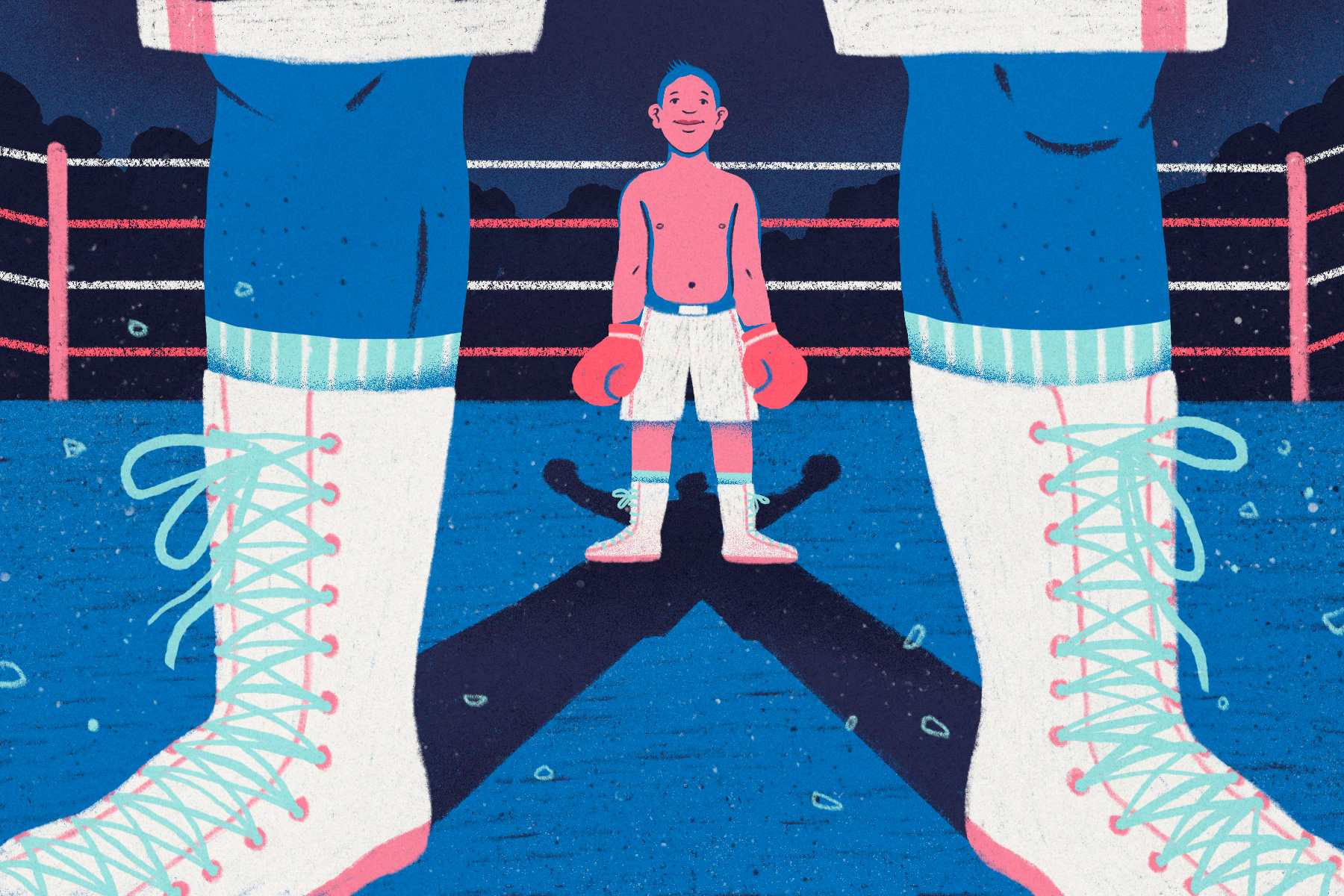
- Home |
- Search Results |
- The furthest a book has taken me: Donal Ryan on ‘The Fight’
My parents must have bought The Fight, Norman Mailer’s firsthand account of Muhammad Ali’s comeback against George Foreman in Kinshasa, Zaire, when it was first published in 1975, because its cover gleams black and white and yellow through my earliest book memories. I was too young to grasp its dense and vexing nuances when I first read it, but Kinshasa, raucous and stifling, its people stirred to frenzy by Ali’s braggadocio and swagger, his messianic presence, was evoked so clearly that I could almost hear the chants of ALI, BOMAYE! and feel the swirling dust risen by Ali’s newly raised army of followers as they danced in his wake.
The man on the cover pointing heavenward became a fascination and a hero to me. My father called him Cassius Clay, and explained to me that he did so out of habit, because that’s what he was called when he first heard his voice on the radio, declaring himself to be the most beautiful, the most intelligent, the fastest, the greatest of all time. He told me about the ‘Rumble in the Jungle’ before I ever opened the book, how the aging Ali had lain back on the ropes and let George Foreman, seven years younger, champion, and seen as the most dangerous boxer in the world, punch him relentlessly for seven rounds, before annihilating the exhausted lion in the eighth to reclaim his heavyweight title.
I could almost hear the chants of ALI, BOMAYE! and feel the swirling dust risen by Ali’s newly raised army of followers as they danced in his wake.
My childhood ambition to be a boxer was left on the floor of a gym in Limerick when I was knocked flat by a ten-year-old who picked me up and apologised wide-eyed, as shocked at his easy victory as I was at how much being punched actually hurt, but our love for Muhammad Ali remained one of the things my father and I had between us, the foremost of a serried rank of sporting idols, elevated in our minds almost to divinity.
I reread The Fight in my late teens and twenties, arrogantly considering myself by then an expert on Ali. My perception of Norman Mailer changed with each reading. He seemed variously adulatory, critical, loving, narcissistic, self-loathing, self-regarding; his nature changed with each page and in different ways on each reading. In a fit of solipsism the night before the fight, he became convinced that in order for Ali to prevail that he, Norman, would have to pass from one high-rise hotel balcony to the next – on the outside. What a ridiculous way to get yourself killed, he thinks. And yet he does it.
Mailer, referring to himself always in the third-person, places himself so firmly at the story’s heart that it’s hard at times not to resent him, to be suspicious of him, or to be fascinated by the intimate account he gives of himself as a man, of mid-1970s Zaire as a place, and of the mercurial, complex Ali as the greatest fighter who ever lived. “I ain’t got no quarrel with them Viet Cong,” Ali declared in 1967 as he refused to be drafted. Those mighty words reverberated around the world, costing him his freedom, his heavyweight title, and his licence to box.
Mailer clearly respected and revered Ali’s fortitude, his moral and physical courage, his wild verbosity and whipcrack wit; he clearly loved Ali, longed to be part of his inner circle, almost dying under the African sun for the opportunity to join him on a training run. But his adoration is adulterated by the conflicts within himself, his spiralling, searching, sometimes contradictory ruminations on race and manhood and philosophy and the uneasy syntheses of sport and politics and tribalism and nationhood. The Fight is a book from the pen of a man engaged in a struggle with his own self-knowledge as intense as his hero’s struggle back to the top of the fighting world.
The Fight led my imagination to the streets of Kinshasa and the tangled, broiling expanses of the Congo, into the blood- and sweat-soaked ring where Ali once more became king. In body, it led me across the river Shannon to the town of Ennis, Co. Clare on a September evening in 2009, where, in a crowd ten-deep on a hilly street, my father and I were brought together again to catch a glimpse of that greatest of sportsmen, processing through the homeplace of his ancestor, Abe Grady, while thousands of awestruck people chanted his name: Ali, Ali, Ali, lifted on the sweet east breeze. The giant smiled, and raised his tremoring hand in acceptance of our reverence and love.
What did you think of this article? Let us know at editor@penguinrandomhouse.co.uk for a chance to appear in our reader’s letter page.
Illustration: Michelle Pereira for Penguin